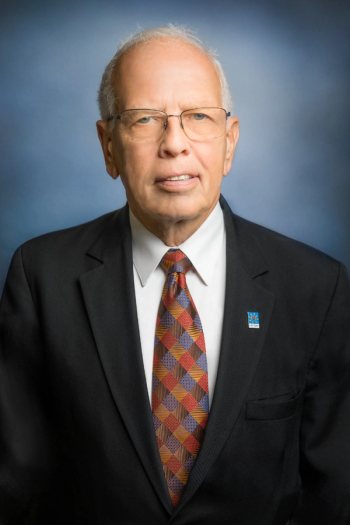
- Managed Healthcare Executive December 2018 Issue
- Volume 28
- Issue 12
Five Ways to Improve the Member Experience
MCOs are stepping up their game to ensure members are highly satisfied with their services. Here are some strategies to consider.
When patients start searching for a new doctor, they typically click through online results on a payer’s website or ask friends and family members for recommendations. But even the best online searches only provide minimal information, such as a physician’s gender, age, educational qualifications, practice locations, specialty, or board certifications.
The patient-primary care doctor relationship is an important one that can span for decades, so helping members find a doctor who is a good fit and who meets the member’s health needs is critical.
To help its members find a physician who understands them, Pittsburgh-based Highmark Health, one of the country’s largest payer/provider organizations serving people in all 50 states and the District of Columbia, developed a Doctor Match tool.
The tool includes a
Participating primary care and OB/GYN doctors must also complete a 10-minute quiz and provide a photo and a two-minute video clip to introduce themselves and their approach to care to prospective patients. This is facilitated by members of Highmark Health’s provider relations team, who set up video cameras and captured photos of physicians in their practices, says Stacy Byers, vice president of digital strategy at Highmark Health.
Highmark Health’s internal data show that 7% of patients have switched providers because of a negative customer experience-and that number is twice as high among digitally-savvy consumers. Twenty-six percent of patients will “shop” providers to determine personal compatibility.
Doctor Match is available to members in Western Pennsylvania and Delaware, according to a spokesperson. Highmark Health may add pediatrics and orthopedic surgery to the online tool in the future, says Byers.
Here are four more ways payers are improving the member experience:
1. Providing a concierge care model
When a patient is sick, they don’t want to be just a number to the insurance customer service representative who answers their call.
That’s why when a member reaches out to New York City-based Oscar Health, they connect with one of five staff on the concierge team at the health insurance company. The team also includes a registered nurse, says Chelsea Cooper, senior vice president of strategy and operations. The member can communicate by phone, secure messaging, or email with any staffer on the concierge team, or they can request to speak to a specific staffer.
When a member calls their concierge team with a clinical question-such as one pertaining to pink eye or whether they need to schedule a flu vaccine-they can also be connected with a doctor for a virtual visit through Oscar’s
The information gleaned about virtual doctor visits is stored within the member’s profile, which allows the payer to know more about each individual member, according to Cooper.
In addition, members have access to the Oscar web, Android, and iOS apps, where they can search for care based on the reason for visit, type of doctor, and location. They can also book appointments and pay their bills. Also available on the app is a pre-selected network of hospitals and physicians.
Members with more complex health needs-such as diabetes-are assigned to the complex case management team; this assessment is based on claims data, says Cooper. This team includes doctors, nurses, and social workers, who can go into members’ homes to do assessments and set up medical devices.
Oscar Health launched the concierge team model to some of its members in 2016 and transitioned all members by the second quarter of 2017, says Cooper.
2. Increasing access to medication-assisted treatment recovery
More than half of the estimated 2.5 million people with substance abuse disorders in the United States are without dependable access to medicated-assisted recovery options, according to Boston area-based Neighborhood Health Plan, a payer arm of Partners HealthCare. The nonprofit payer, which will become AllWays Health Partners on January 1, 2019, highlights that nearly 2,000 people in Massachusetts died due to opioid-related overdoses in 2017.
That’s why Neighborhood Health Plan is trying to improve the experience for members and non-members by offsetting the cost for providers to dispense buprenorphine products-such as Suboxone, which is used to treat cravings and withdrawal symptoms related to opioid dependency-and other medication-assisted treatments.
Specifically, the payer will pay providers $1,000 to support a provider’s training, which is required by the Drug Enforcement Agency (DEA) to prescribe and monitor patients during these treatments. In addition, once providers have been certified and have treated at least 10 patients, they will receive a $4,000 honorarium. The patients treated by the trained providers don’t have to be health plan members to qualify for payment, says Tony Dodek, MD, chief medical officer.
Additional efforts to support Neighborhood Health Plan members struggling with opioid dependence include:
- No pre-authorization requirements for Suboxone.
- No copays for Narcan (naloxone), which is used to revive people who have overdosed on opioids; in addition, pharmacists inform members about their eligibility for free supplies of Narcan when they receive a prescription for high-dose narcotic painkillers.
- Two trained and certified recovery coaches who work with at-risk patients and, hopefully, prevent life-threatening relapses. According to its announcement, Neighborhood Health Plan is the first payer in the country to hire recovery coaches for this purpose.
Neighborhood Health Plan’s strategy is to optimize access to treatment, says Dodek.
“The problem is related to access to medication-assisted therapy,” he says, noting that evidence shows the most effective way to treat opioid addition is with medications such as Suboxone, in conjunction with counseling.
Currently, there aren’t enough providers in Massachusetts with this training, which means patients don’t have access to medical-assisted recovery from opioid dependence, he says.
In Massachusetts, physicians with DEA-required training can prescribe these medications,
According to DEA rules, providers who receive training on medication-assisted treatment of opioid dependence can treat up to 100 patients.
3. Incorporating compassion training
Struggling to come to grips with a recent cancer diagnosis or trying to adhere to a diabetes care plan are stress-inducing circumstances. That’s why members want to hear a friendly, calm, informed voice at the other end of the phone when they call their health insurer.
To support its members during stressful times, Minnetonka, MN-based UnitedHealthcare trains its customer service personnel on what it calls its “compassion code.”
The payer defines this as taking an empathetic approach to members’ needs by paying attention to their voices and the language they’re using during the phone interaction, says Rebecca Madsen, chief consumer officer. This approach allows a customer service representative to understand the member’s state of mind.
Customer service representatives learn about the compassion code during extensive training, which features soft skills, technical skills, and operational policies and procedures.
Customer service representatives are evaluated based on an improvement in member satisfaction, says Madsen. These variables include:
- Single-call resolution: Was the issue resolved correctly on the first call?
- Positive connection: Was the member treated with care, concern, and respect?
- Compliance: Did the interaction meet privacy and regulatory requirements?
- Adherence to business requirements: Did the call adhere to operational policies and procedures?
4. Supporting members’ weight loss goals
Weight loss is difficult. And most people who lose weight are
To help its members lose weight, UnitedHealthcare developed Real Appeal, which is a personalized, interactive online weight-loss program. The program uses personal coaches and well-known celebrities-such as Dr. Oz, actor Tom Arnold, and actresses Jennie Garth and Vivica A. Fox-to support members in their weight-loss journey.
At its core, Real Appeal combines social support, entertainment, and science to support members. The program includes a web program that features segments on fitness, cooking, stress management, and sleep.
Program participants receive exercise DVDs and resistance bands, along with measuring cups and a food scale to help control portion size. Also included are booklets with weight-loss information and a measuring tape to track waist size and a weighing scale.
Since the program was launched in late 2015, more than 100,000 enrolled members have collectively lost more than 1 million pounds or an average of 7% of their body weight, according to United Healthcare. The program has saved employers up to 16% in annual medical costs, when program participants are compared to nonparticipants.
Aine Cryts is a writer based in Boston.
Articles in this issue
about 7 years ago
Managed Care State of the Industry 2018about 7 years ago
Midterm Election Results: 6 Ways Healthcare Could Change in 2019about 7 years ago
What Every Healthcare Executive Must Remember as 2019 Approachesabout 7 years ago
Top Blockbuster Drugs for 2019Newsletter
Get the latest industry news, event updates, and more from Managed healthcare Executive.























